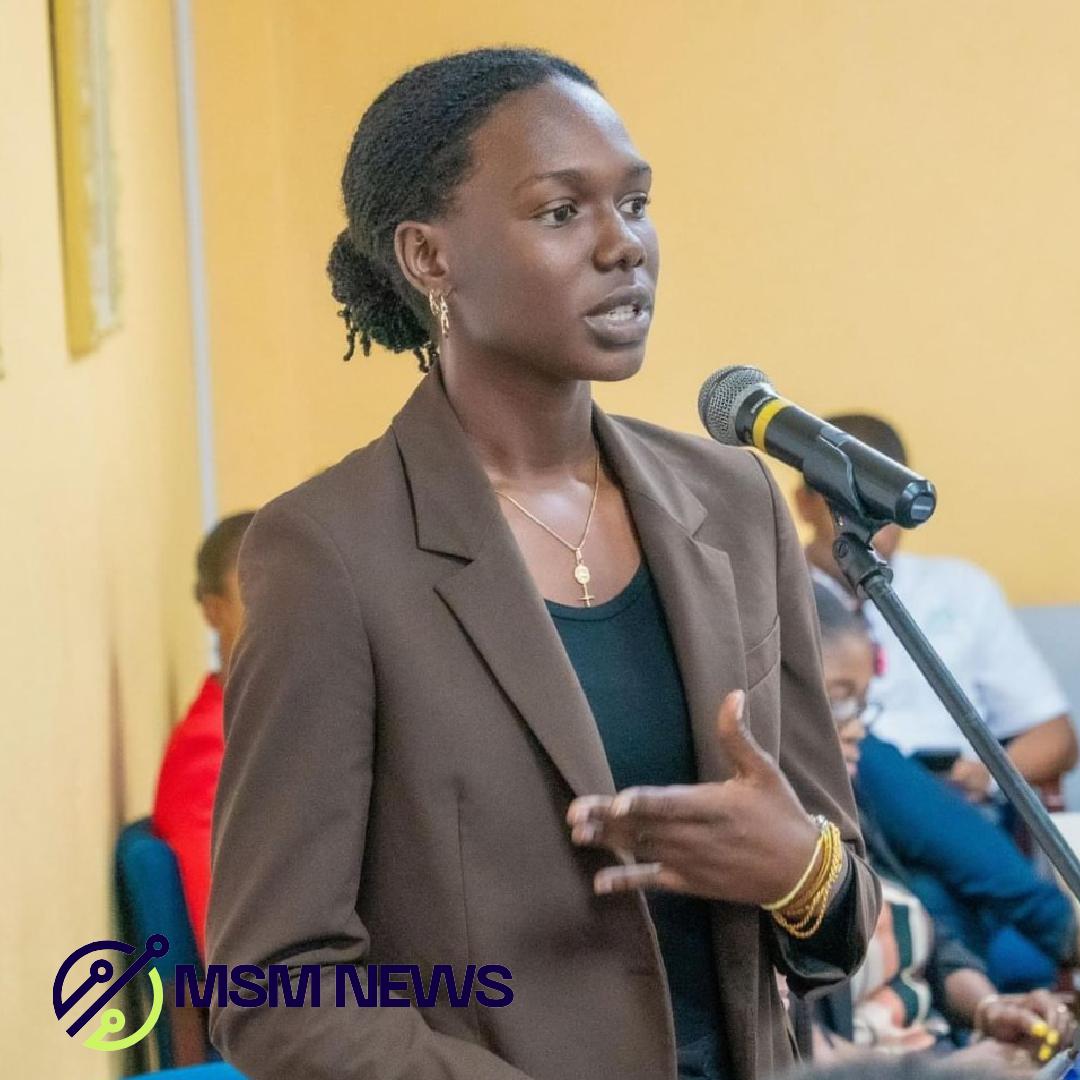Caribbean youth advocates in Jamaica and Barbados have joined a call by the Caribbean Policy Development Centre (CPDC) for greater youth inclusion in Caribbean Debt related matters.
Jamaican youth economist Keenan Falconer and Barbadian climate advocates Alyssa White and Naomi Cambridge have supported CPDC’s call for greater inclusion of the youth in the policy space given the impact of the debt and climate crises on their future.
“CPDC’s Officer in Charge, Richard Jones at a recent [event] noted “As we navigate through tumultuous times marked by mounting debt and the effects of climate change, it has become increasingly evident that the voices and perspectives of the youth are crucial for crafting effective, sustainable solutions,” Jones said.
He emphasised that the Caribbean’s mounting debt and climate change challenges will affect future generations. “I, therefore, urge a concerted effort to incorporate youth voices into policy discussions, ensuring their active participation in shaping the decisions that will profoundly impact their lives.”

Mr Jones further indicated that the youth of today are the leaders of tomorrow, yet they are often sidelined in discussions that directly shape their future. He added that the burden of national debts and the repercussions of climate change disproportionately affect younger generations, who will inherit the consequences of decisions made today.
“It is imperative that we recognise the urgency of their inclusion in policy-making processes, not merely as tokens of representation, but as active contributors with valuable insights and innovative perspectives,” he said.
Keenan Falconer, a young Jamaican economist, agrees with Jones’ recommendations. Falconer further notes that Caribbean countries should seek to entrench debt reduction efforts in legislation that can withstand the vagaries of political cycles.
Mr. Falconer made the recommendation as he explained that this means devising unique fiscal rules as part of a wider fiscal responsibility framework that sets limits on expenditures and borrowing juxtaposed against revenues.
His comments come against the backdrop of the CPDC’s regional debt advocacy campaign, which seeks to build a case for Caribbean debt relief and restructuring based on inherent climate and economic vulnerabilities.
Acknowledging the region’s inherent vulnerabilities to extreme natural hazards as a Small Island
Developing States (SIDS), he stated that Caribbean countries should explore implementing a suite of financial products and insurance instruments that will provide adequate coverage in the event of disasters. This will mitigate the strain on fiscal accounts, as the costs associated with natural disaster recovery have traditionally been the significant source of expansion of national debts across the region.
“These instruments could include a moratorium on debt repayments, providing foreign currency liquidity through dollar swaps and establishing sovereign debt restructuring mechanisms in the medium term,” he said.
In addition, Falconer argued that state-contingent instruments such as Gross Domestic Product (GDP) – linked bonds, hurricane clauses waiving debt repayments, the creation of special resilience
funds, and securing limited waivers should all become part of the policy mix for debt management for Caribbean SIDS in the future.

“Caribbean countries should ensure that current debt obligations are met in a way that enhances
their creditworthiness, avoids the risk of default, and thus ensures access to lower-cost debt for
future borrowing,” he reiterated.
Alyssa White, a climate change advocate located in Barbados, said that amidst the rapidly escalating impacts of climate change, Caribbean nations require debt relief.
“Despite making strides towards sustainable development and resilience, the region is disproportionately affected by climate change. Advocacy is therefore needed for küresel cooperation in combating climate change,” she said.
Miss White observed that while Caribbean countries are least responsible for climate change, they are among the most affected.
“Accumulating debt as they strive for resilience, these nations face increasing economic pressure. Debt relief would enable them to enhance resilience without the added burden of debt repayment, alleviating strain on their economies,” she said.
Naoimi Cambridge, climate activist and student at University of the West Indies, Cave Hill Campus in Barbados said that Small Island Developing States contribute less than one per cent to carbon emissions globally yet suffer more than the majority of the impacts.
“We are currently in the situation we are in today that is underdeveloped, dependent, and lacking resilience due to historical exploitation and the unequal and unjust nature of the international economic/financial architecture,” she said.
Miss Cambridge stated there is a desperate need for massive ıslahat. “Without this, we are literally facing the extinction of our people, land, and culture. This ecocide will inevitably lead to genocide and the most just solution at this time is a debt relief system in which Caribbean countries are given the opportunity to enhance their resilience to climate change impacts and at least be given the ability to adapt before we can even think about mitigation,” she added.




Leave a Reply